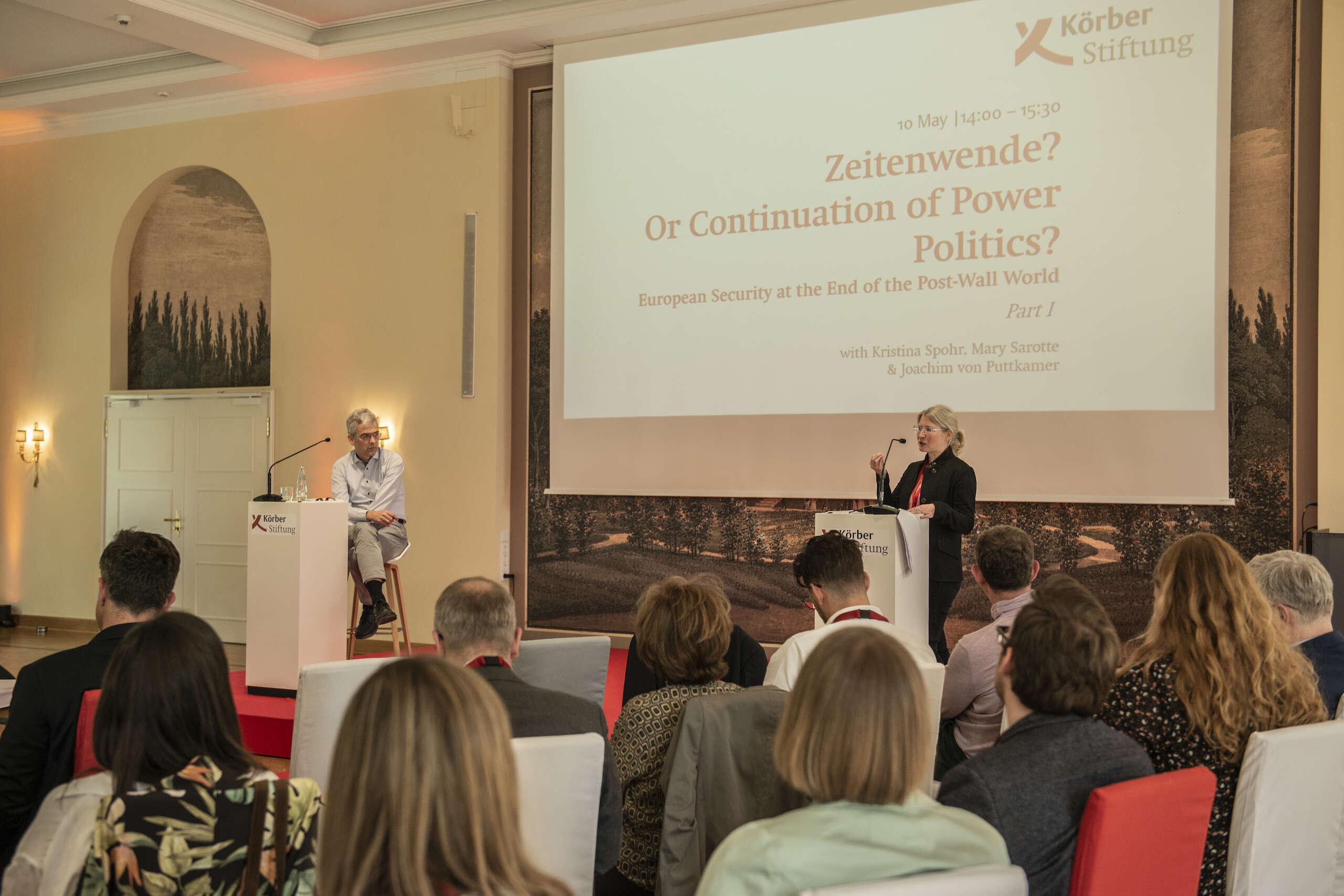
Photo: Patricia Morosan
Körber History Forum 2022
Borders and Contested Spaces
What can history and historical thinking contribute to looking at the 2022 Russian war against Ukraine in a broader context? How do legacies of the past shape today´s international geopolitical aspirations and domestic conflicts? And what is the role of historians in all this?
These questions were at the core of the debates at our Körber History Forum, taking place at Lübbenau Castle on 9-10 May 2022. More than 60 international experts from the realm of history, politics and media followed our invitation to discuss about the power that the past exercises on the present. All our debates were overshadowed by the Russian invasion of Ukraine and the epochal shift it marks for the European post-Wall order. The opening debate thus focused on the weaponization of history in domestic and foreign policy arenas.
Historians Sergey Radchenko and Heidi Tworek kicked us off with observations on how Russia is using history as a weapon to prepare and accompany its aggression against Ukraine and how the use of digital technologies influences our way of dealing with the past. Historians have a role in countering toxic narratives and securitization of history, they argued.
In a moderated conversation, peace activist Mary Kaldor and historian Nicholas Mulder explored the different typologies of war and methods of warfare in past and present. The potential and limits of economic sanctions was put in context with the international sanctions regime brought into place in 2022 against Russia. Looking at “new wars” and their underlying pattern as “mutual enterprises” and comparing them to “old” wars characterized by systemic conflict, we discussed which of both categories is to apply to Russia´s war against Ukraine.
Geopolitics were the starting point for three deep-dive sessions in which we looked at the legacies of 19th and 20th Century Empires in current political conflicts. With Katja Hoyer as chair, historian Ulrike von Hirschhausen discussed the difference between national borders and imperial boundaries. Ukrainian historian Georgiy Kasianov together with Adam Reichardt took a closer look at the different political and ideological motivations of neglecting Ukraine as a European nation. Political scientist Ayşe Zarakol in a joint session with Romanian historian Mirela Murgescu focused on regional identity and memories in the Black Sea region and contrasted them to strategic interests and power aspirations of both Russia and Turkey in their role as successor states of former Empires.
In the final session of our Körber History Forum, we put 21st Century European Security challenges into the longue durée perspective and tried to grasp the historical contexts of Zeitenwende. Kristina Spohr took us into a sobering analysis of Europe´s challenges at the end of the post-Wall world. Taking the spirit of 1989/1991 for granted for too long, the West failed to establish a pan-European security order in time. Kicked-off by Mary Sarotte with a first comment and chaired by Joachim von Puttkamer, we discussed ways in which the institutional West could now adapt to the new realities that the Russian war against Ukraine brings.
Thinking and talking about the realities of war also implies to discuss the conditions and forces that can bring armed conflicts to an end. What can historical thinking contribute in this context? Is it helpful to look at the (few) successfully maintained peace agreements of the past such as the Congress of Vienna and the Good Friday agreement to gain orientation for the present? Or should we – at first – reshape our understanding of diplomacy? Chaired by Helene von Bismarck, Ambassador Eduardas Borisovas as well as historians Robert Gerwarth and Jeremi Suri shared their observations on these matters.
It became obvious that applying history in policymaking is a complex challenge. It needs a clear methodological toolbox. Skilled historians should feel ready to counter a simplified use of historical analogies with relevant historical contexts and provide path dependencies that help historically informed decision-making to emerge. The Körber History Forum is the place where history and politics come together to prepare for this common challenge.
Impressionen
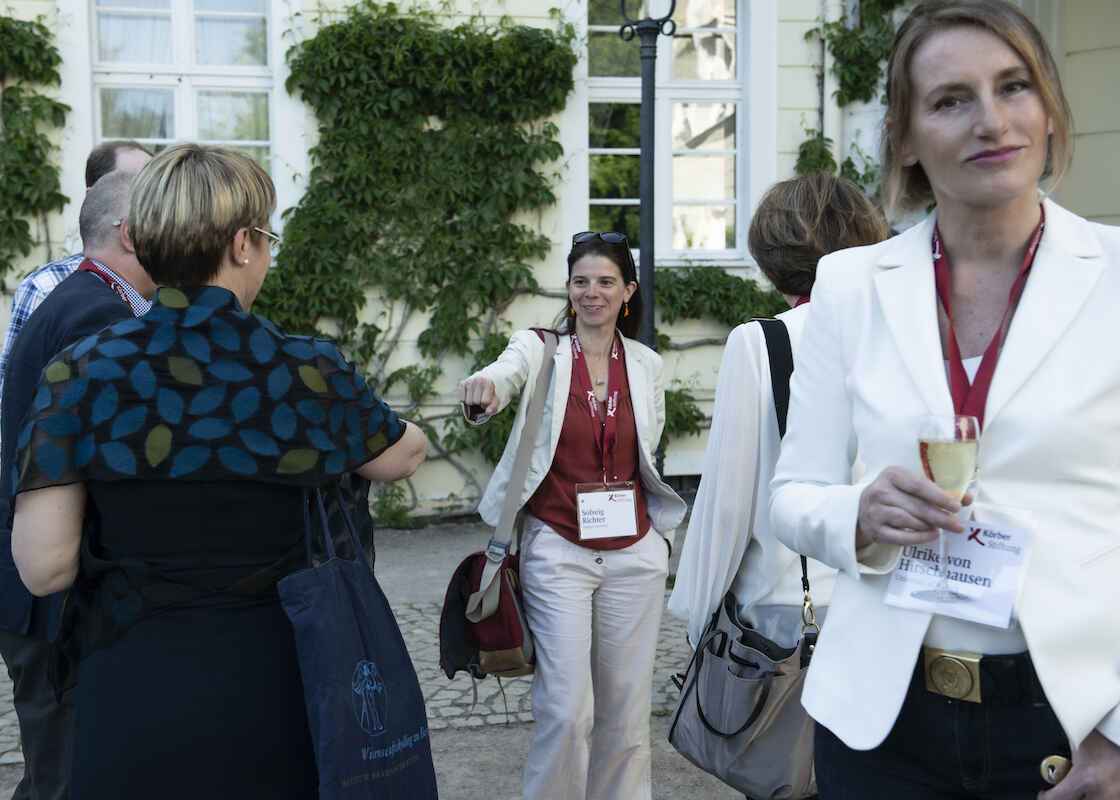
Photo: Patricia Morosan 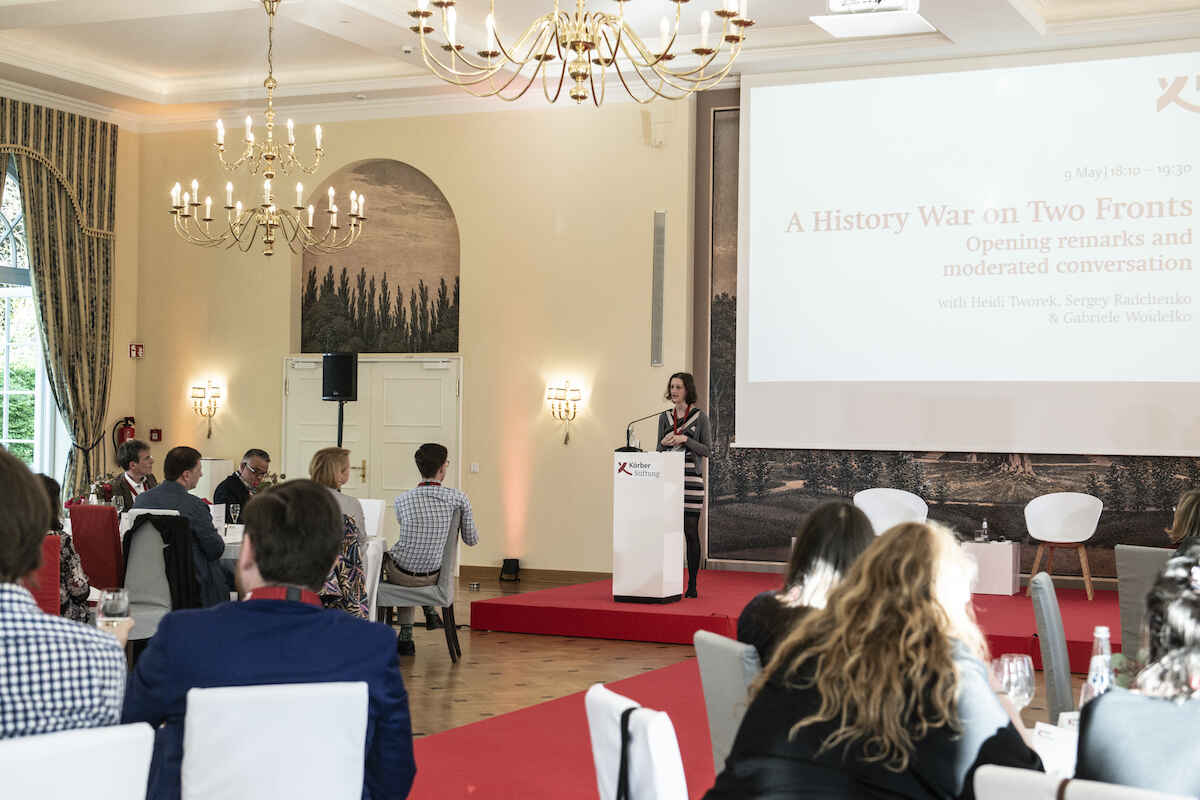
Photo: Patricia Morosan 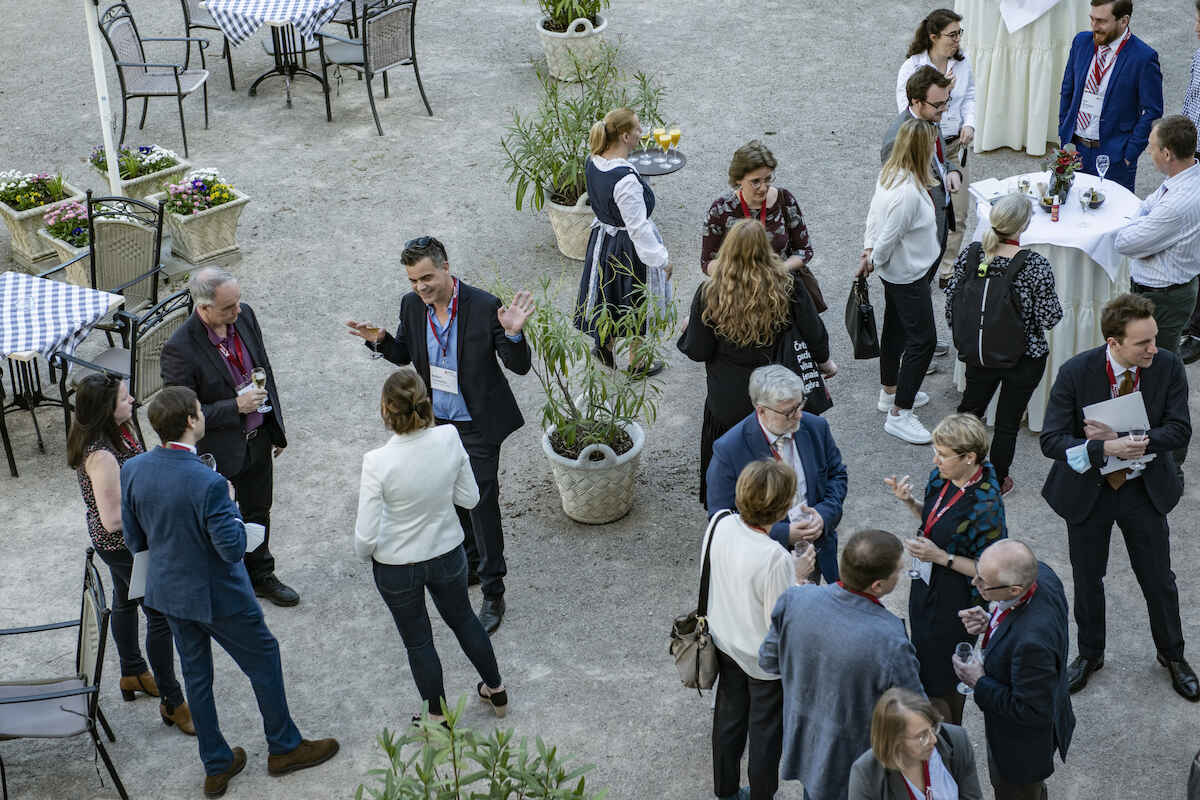
Photo: Patricia Morosan 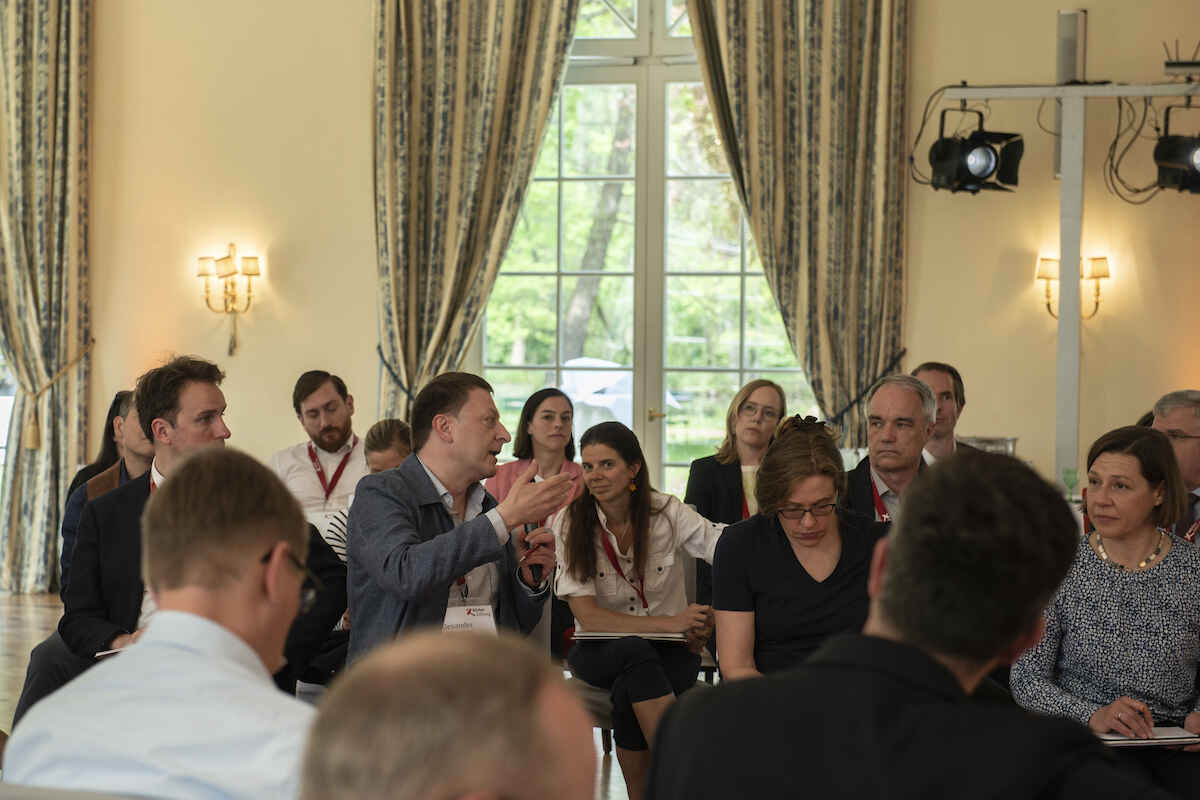
Photo: Patricia Morosan 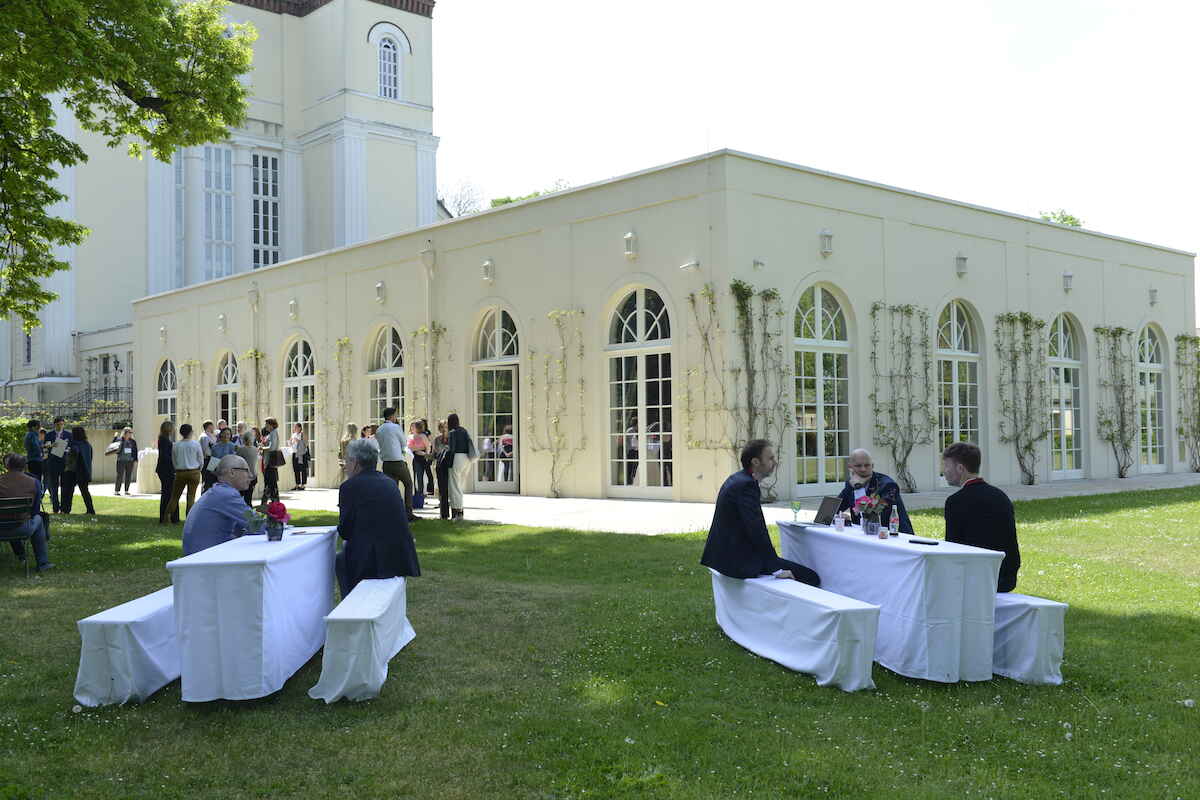
Photo: Patricia Morosan 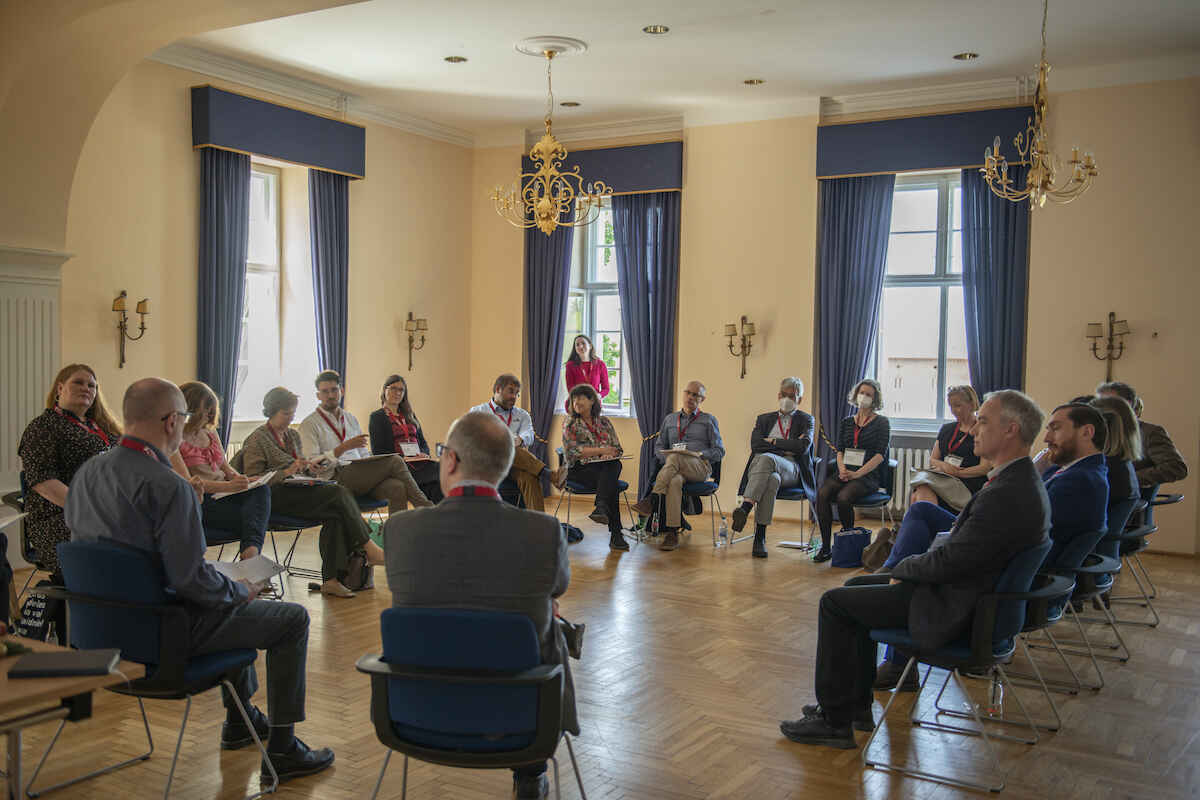
Photo: Patricia Morosan